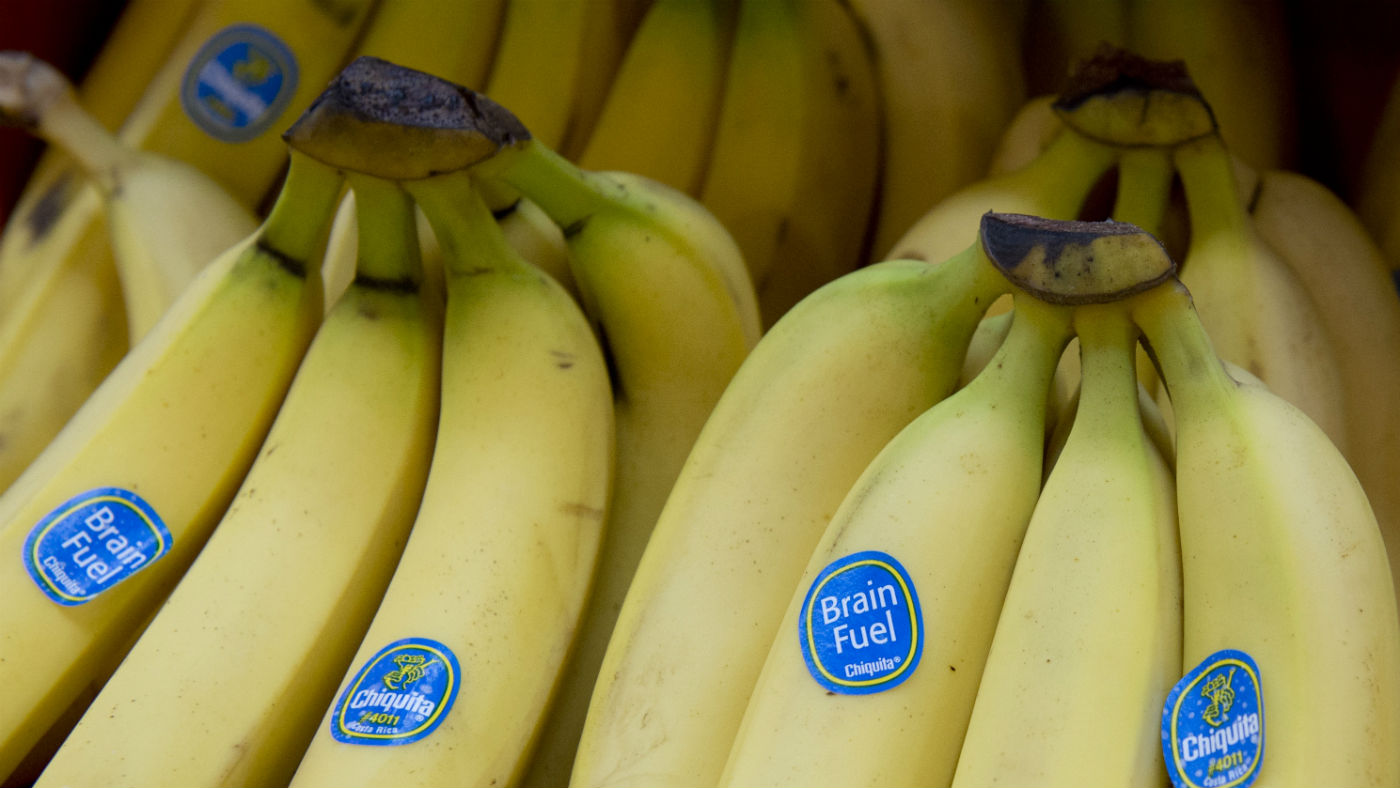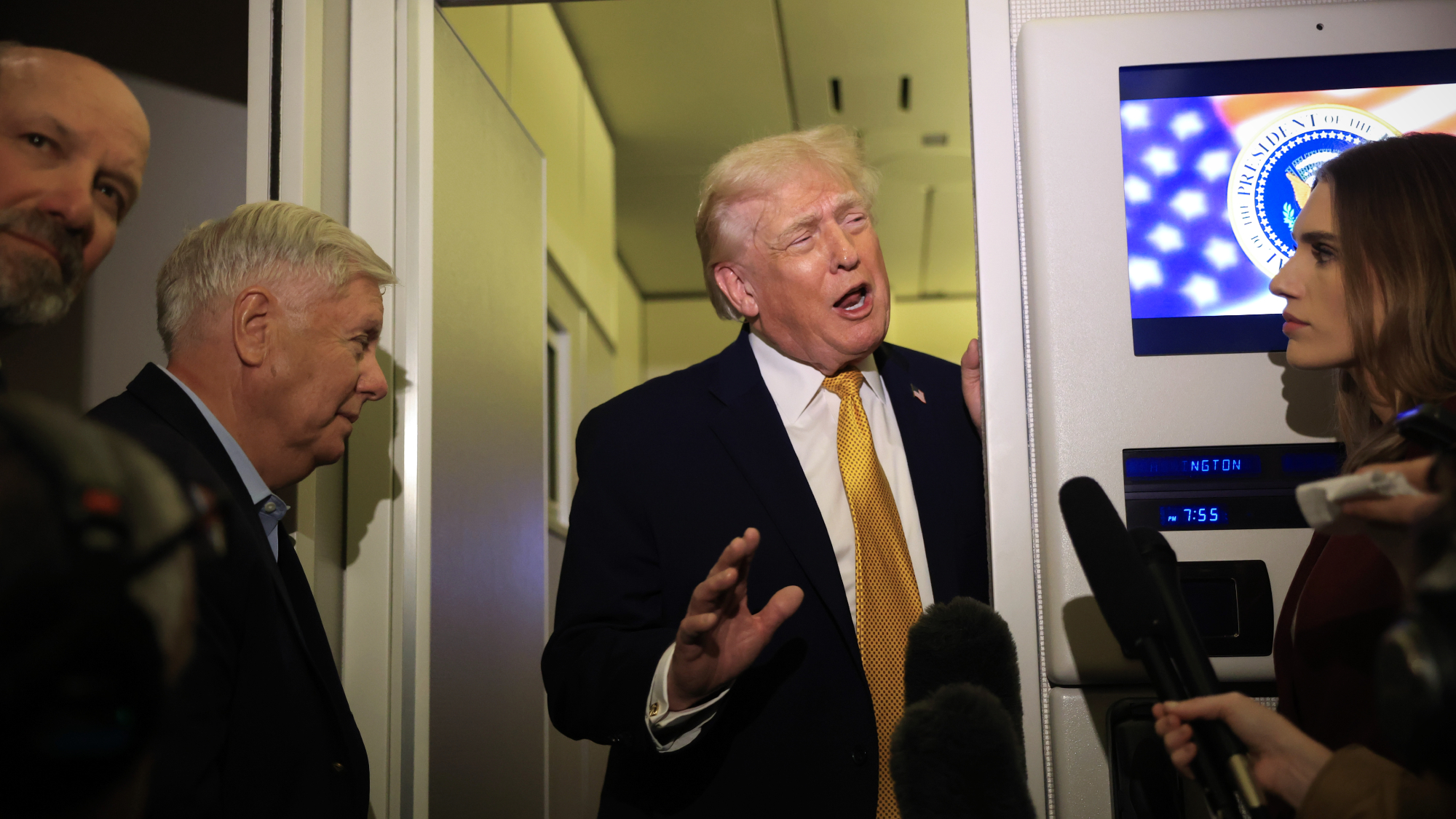What price a UK-US post-Brexit trade deal?
US lobbyists seek changes to UK standards amid fears rush for quick trade deal could see protections weakened

A free daily email with the biggest news stories of the day – and the best features from TheWeek.com
You are now subscribed
Your newsletter sign-up was successful
US lobby groups are pushing to change UK standards in agriculture, pharmaceuticals, emissions and tech, stoking concerns the rush to secure a quick post-Brexit trade deal will lead to the weakening of hard-fought protections.
More than 100 comments have been submitted by lobby groups to the office of the US Trade Representative “to help develop US goals as it prepares to start trade talks with the UK after Brexit,” reports the BBC.
Responses to the consultation, which was launched late last year, “were dominated by the powerful food and agriculture lobby, which made nearly a quarter of the total submissions received — far more than any other sector of the US economy,” says Unearthed.
The Week
Escape your echo chamber. Get the facts behind the news, plus analysis from multiple perspectives.

Sign up for The Week's Free Newsletters
From our morning news briefing to a weekly Good News Newsletter, get the best of The Week delivered directly to your inbox.
From our morning news briefing to a weekly Good News Newsletter, get the best of The Week delivered directly to your inbox.
The meat lobby wants to the sale of growth hormone-fed beef, currently banned in the UK and EU, to be allowed in the UK.
There are also calls for US officials to seek lower tariffs on agriculture goods, while farming groups are demanding any deal should relax current EU rules governing genetically modified crops, antibiotics in meats, and pesticides and herbicides.
Drugs companies, meanwhile, want changes to the NHS drugs approval process, including price controls, to allow the health service to buy more US drugs.
Technology firms have also weighed in with a list of demands, chiefly that the UK abandon plans for a so-called digital tax on big internet firms such as Amazon and Google as well as prohibiting rules that data be stored locally.
A free daily email with the biggest news stories of the day – and the best features from TheWeek.com
The comments effectively fire the opening salvo in what is expected to be a bitter battle between US and UK trade representatives.
The International Trade Secretary Liam Fox has insisted that a US-UK deal to remove tariffs and other trade barriers would see transatlantic trade between the two countries increase by £40bn a year by 2030.
Yet many fear this could lead to pressure to water down or even scrap food, farming, health, manufacturing regulations despite promises by the government that environmental and worker’s rights will be protected post-Brexit.
Last year, The Guardian reported that “an unprecedented drive to lobby ministers to ditch strict EU safety standards in order to secure a US trade deal is being drawn up by a transatlantic group of conservative thinktanks”.
Greenpeace, whose Unearthed investigative team first revealed the submissions, “warned there is a danger that UK ministers would see such a deal as attractive in return for sealing a quick trade bargain with Washington”, iNews reports.
A 2018 investigation by the Bureau of Investigative Journalism revealed a catalogue of hygiene failings in recent years in some major US meat plants producing poultry, beef and pork products.
“The revelations will reignite fears that dirty US meat could flood into Britain if strict food safety standards aren’t maintained after Brexit,” says the Bureau.
In a statement to Unearthed, shadow trade secretary Barry Gardiner said:
“[Environment Secretary Michael] Gove may not allow our domestic standards to be lowered but Fox may allow you to buy the American produce that is produced to a lower tolerance level and is therefore cheaper. In their mind that is not a lowering of our standards, it is simply ‘Consumer Choice’ and the pursuit of free trade.”
-
 Political cartoons for February 20
Political cartoons for February 20Cartoons Friday’s political cartoons include just the ice, winter games, and more
-
 Sepsis ‘breakthrough’: the world’s first targeted treatment?
Sepsis ‘breakthrough’: the world’s first targeted treatment?The Explainer New drug could reverse effects of sepsis, rather than trying to treat infection with antibiotics
-
 James Van Der Beek obituary: fresh-faced Dawson’s Creek star
James Van Der Beek obituary: fresh-faced Dawson’s Creek starIn The Spotlight Van Der Beek fronted one of the most successful teen dramas of the 90s – but his Dawson fame proved a double-edged sword
-
 How corrupt is the UK?
How corrupt is the UK?The Explainer Decline in standards ‘risks becoming a defining feature of our political culture’ as Britain falls to lowest ever score on global index
-
 ‘One day fentanyl will come back — and there will be little anyone can do’
‘One day fentanyl will come back — and there will be little anyone can do’Instant Opinion Opinion, comment and editorials of the day
-
 Can Starmer continue to walk the Trump tightrope?
Can Starmer continue to walk the Trump tightrope?Today's Big Question PM condemns US tariff threat but is less confrontational than some European allies
-
 The high street: Britain’s next political battleground?
The high street: Britain’s next political battleground?In the Spotlight Mass closure of shops and influx of organised crime are fuelling voter anger, and offer an opening for Reform UK
-
 EU-Mercosur mega trade deal: 25 years in the making
EU-Mercosur mega trade deal: 25 years in the makingThe Explainer Despite opposition from France and Ireland among others, the ‘significant’ agreement with the South American bloc is set to finally go ahead
-
 Trump says US ‘in charge’ of Venezuela after Maduro grab
Trump says US ‘in charge’ of Venezuela after Maduro grabSpeed Read The American president claims the US will ‘run’ Venezuela for an unspecified amount of time, contradicting a statement from Secretary of State Marco Rubio
-
 Why is Trump’s alleged strike on Venezuela shrouded in so much secrecy?
Why is Trump’s alleged strike on Venezuela shrouded in so much secrecy?TODAY'S BIG QUESTION Trump’s comments have raised more questions than answers about what his administration is doing in the Southern Hemisphere
-
 Biggest political break-ups and make-ups of 2025
Biggest political break-ups and make-ups of 2025The Explainer From Trump and Musk to the UK and the EU, Christmas wouldn’t be Christmas without a round-up of the year’s relationship drama